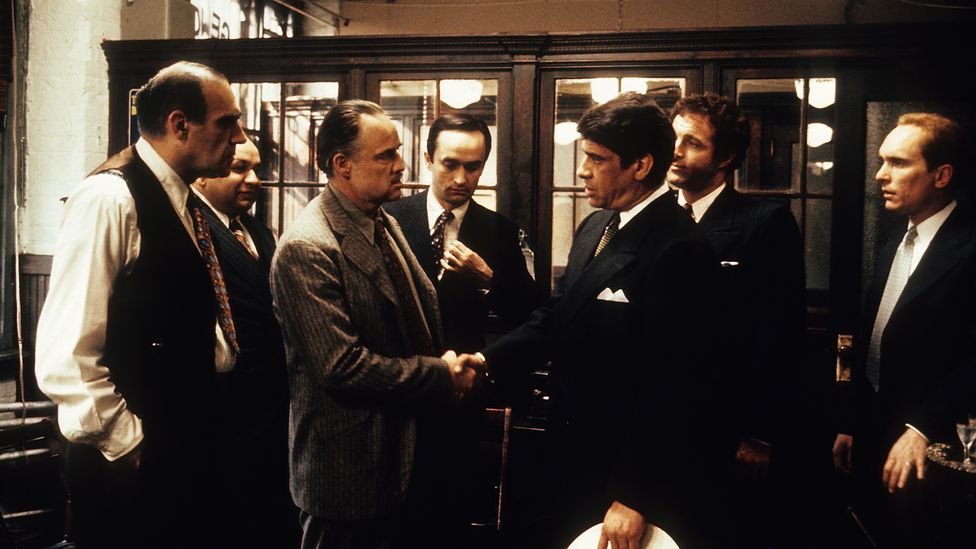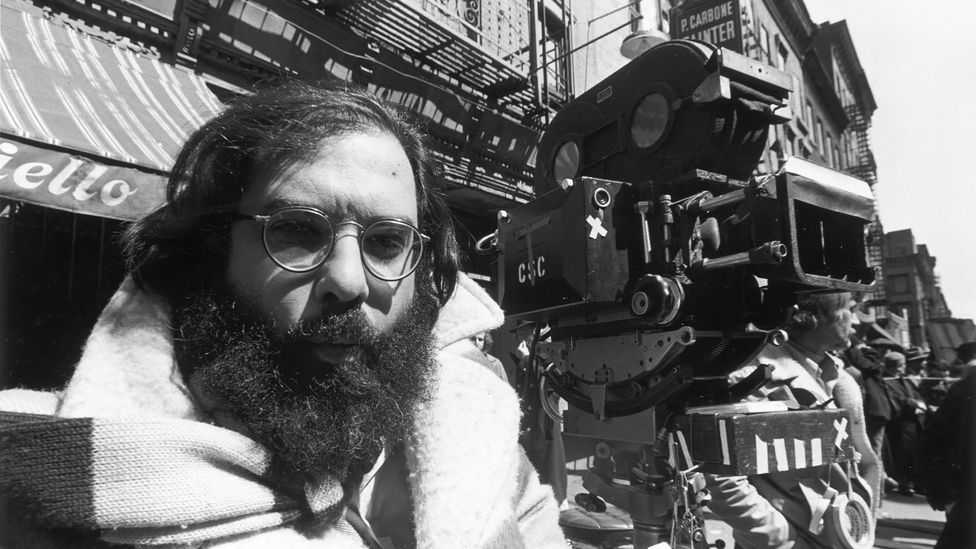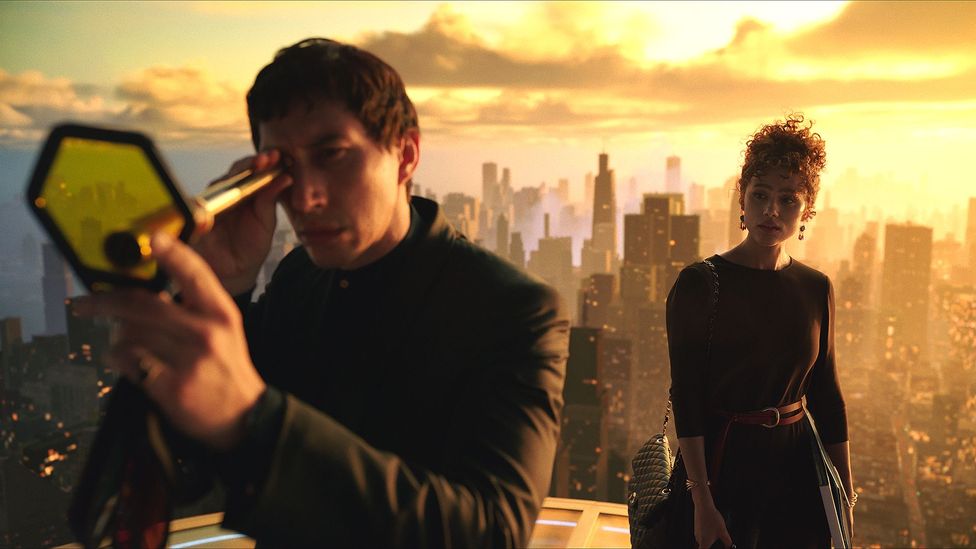It's common enough for a film to get some financial backing from one or more of its film-makers. Sometimes a first-time director will scrape together $1,000 to shoot an indie thriller with their friends, and sometimes a big-name actor will chip in to get their mid-budget vehicle off the ground. But Megalopolis is something else. An experimental science-fiction epic that premieres at the Cannes Film Festival this week, Megalopolis was funded by its writer-director, Francis Ford Coppola, who forked out a whopping $120m of his own money. It's vanishingly unlikely that the 85-year-old will ever recoup that nine-figure sum, but Coppola isn't too bothered either way. "For me, when you do go into the great unknown, you don't want to say, 'Oh, I wish I had done this or that,'" he mused in Deadline. "You want to say, 'I got to do it.'"
The film is more than 40 years in the making – or rather, for most of those 40 years, in the "not-making". When Coppola conceived it, he was having one of the hottest hot streaks in Hollywood history. He had made The Godfather, The Conversation, and The Godfather Part II in the 1970s, and he was working on Apocalypse Now when he had the idea for something even bolder. Set over one day in a near-future New York, Megalopolis would tell the sprawling story of an architect who hopes to rebuild the city after a cataclysm, and a corrupt mayor who stands in his way.
In an interview in Film Comment in 1983, Coppola boasted that he had spent two months amassing 400 pages of notes. His ambitious fable was inspired, he said, by a period in Ancient Rome when "everybody was into death, all the values had turned into a pursuit of money". The film would "deal with questions of who we are, where we are, what is the human race at this point", and its principle theme would be the possibility of a perfect society, or utopia. "The way I'm going to do it," he said, "is in a kind of elaborate, novelistic structure which has an intermission and a very bizarre second half going later and later into the night until the section that deals with three in the morning is really a wild section which ultimately puts forth the basis for the concept of utopia in the course of this mad hallucination that goes on." Bear in mind that Coppola was drinking wine while the interview was conducted – wine from his own vineyard in California.
Coppola kept announcing that Megalopolis would be his next project, before shelving it again and again
The problem was that his films weren't considered a sound investment in the 1980s. Apocalypse Now had been a notoriously tumultuous production – Harvey Keitel was fired from the lead role, and his replacement, Martin Sheen, went on to have a heart attack on set. Then came One from the Heart, a romantic musical which was a disastrous flop in 1982: its reported budget was $23m and the most generous estimate of its worldwide takings is around $1m. It was difficult, then, to get anyone to gamble on a futuristic, psychedelic, political and philosophical meditation on the links between the New York of today and the Rome of Cicero and Catiline. In fact, Coppola once said, "it was difficult even to get feedback on it". Not that he was deterred. As the years went by, he weathered harrowing personal and financial storms, but he kept shooting test footage and commissioning concept art, and he kept announcing that Megalopolis would be his next project, before shelving it again and again.

Coppola had made The Godfather, The Conversation, and The Godfather Part II and was working on Apocalypse Now when he had the idea for Megalopolis (Credit: Getty Images)
He didn't even mind paying for it himself. An inveterate risk-taker and boundary pusher, Coppola argued on Late Night with David Letterman, back in 1982, that directors shouldn't wait for anyone to give them the go-ahead. "My feeling," he said, "is when you want to get a movie going, it's so easy for someone to come in and say, 'Well, we don't like the idea', so really, if you want to start, my feeling is just start, and follow your heart. On Godfather Two, we had spent a million dollars building the sets before Paramount ever told us we could make it." That attitude could help to explain why Coppola's own studio, Zoetrope, went bankrupt in 1990.
More like this:
• Coppola: Why The Godfather was a star warning for the US
• Is this the most controversial film ever made?
• 11 of the best films to watch in May
His plan by this point was to take on mainstream director-for-hire jobs, such as Jack (1996) and The Rainmaker (1997), and then "keep that money separate and use it to make Megalopolis". But even this plan was derailed by the terrorist attacks on New York in September 2001. "It made it really pretty tough," Coppola said in Ain't It Cool News in 2007. "A movie about the aspiration of utopia with New York as a main character, and then all of a sudden you couldn't write about New York without just dealing with what happened and the implications of what happened. The world was attacked and I didn't know how to try to deal with that." He had "abandoned" Megalopolis at last, he said. It became one of those tantalising what-if films which seem destined to remain unmade: in a 2013 book on the subject, The Greatest Movies You'll Never See, one writer concluded that "barring a miracle", Megalopolis "will never see the light of day".
What actually happened wasn't a miracle, but it wasn't far off. Remember the wine that Coppola sipped during that interview in 1983? Wine made from his own grapes? Whatever his ups and downs in the movie business, his wine business grew and grew, until it became the 13th largest in the US. He knew that his children Sofia and Roman Coppola didn't want to take it over, so he finally chose to merge his company with someone else's, and to sell his share, leaving him with all the money he needed to make Megalopolis.

Francis Ford Coppola forked out a whopping $120m of his own money to finance the film (Credit: Getty Images)
In April 2019, he announced that pre-production was underway, and in November 2022, filming began in Georgia. It felt almost inevitable that his leading man should be Adam Driver, who was also the star of that other legendary decades-in-the-not-making folly, Terry Gilliam's The Man Who Killed Don Quixote.
Typically for Coppola, though, the production didn't necessarily go smoothly. There were stories in The Hollywood Reporter claiming that the set was "absolute madness" and that the finished film was "so not good". This week an article in The Guardian stated that the director "tried to kiss some of the topless and scantily clad female extras" in one scene, according to witnesses on set. The film's executive co-producer Darren Demetre refuted these claims, saying: "I was never aware of any complaints of harassment or ill behaviour during the course of the project." Prior to these recent allegations, Coppola and Driver had defended shooting practices on the film. "Because he financed it himself," Driver told Collider, "it made the shooting process one of the best experiences if not the best shooting experience I've ever had. There was no excess conversation, there was no people robbing Peter to pay Paul. He was in control of the movie he wanted to make and that was it. It felt like, 'oh, this is how movies should be'. And the movie is wild... I couldn't be more excited by it."
The twist is that another film premiering at Cannes this year is Horizon: An American Saga – Chapter One – and that, too, was funded by its director, in this case Kevin Costner. It must say something about Hollywood's current timidity that these two Oscar winners had to dip into their own pockets to make their passion projects, but in a joint interview in Deadline, they both looked on the bright side. "I won the bet," said Coppola. "I am grateful to be in the position to be able to make a film that haunts me and that I feel will be wonderful, that will shed light on the subject of what the future might be like and what human beings are really like. I am as happy as I could be."
--
If you liked this story, sign up for The Essential List newsletter – a handpicked selection of features, videos and can't-miss news, delivered to your inbox twice a week.
For more Culture stories from the BBC, follow us on Facebook, X and Instagram.
